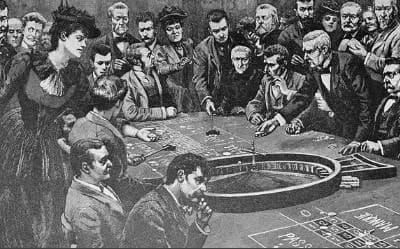The Fascinating History of Roulette
Throughout the centuries, roulette has captivated gamblers with its elegant and thrilling gameplay. The game’s origins can be traced back to 17th-century France, where it was first introduced by the brilliant mathematician and philosopher, Blaise Pascal. Since its inception, roulette has evolved and grown in popularity, making its mark as one of the most iconic and beloved casino games worldwide.
The Birth of Roulette
It is believed that Pascal came up with the idea of roulette while attempting to invent a perpetual motion machine. Although he didn’t succeed in creating the perpetual motion machine, he inadvertently created a timeless game instead. The word “roulette” itself means “small wheel” in French, perfectly describing the essence of the game.
The early version of roulette, known as “French Roulette,” featured both the single zero and double zero pockets on the wheel. However, in 1843, French brothers François and Louis Blanc made a significant change that would shape the future of roulette. They decided to remove the double zero pocket, thus creating the “European Roulette” variant we often see today.
The Rise of Roulette in Europe
During the 18th and 19th centuries, roulette gained immense popularity across Europe. It became a staple in prestigious gambling establishments, attracting both nobility and commoners alike. The allure of the game’s suspense and potential for big wins drew large crowds.
The fame of roulette grew so much that it even caught the attention of some of Europe’s renowned authors and intellectuals. Fyodor Dostoevsky, the Russian novelist, wrote about his own experiences with the game in his novel “The Gambler,” exemplifying the addictive nature of roulette.
Roulette Makes Its Way to America
As European immigrants settled in the United States, they brought their beloved game of roulette with them. However, to differentiate it from the European version, an additional double zero pocket was added to the wheel, resulting in the creation of the “American Roulette” variant.
American Roulette quickly gained popularity, finding its place in the booming gambling establishments of Las Vegas and other cities. The double zero pocket gave the house a higher edge, which increased the excitement and potential winnings for players.
The Advent of Online Roulette
With the rise of the internet, the world of gambling underwent a significant transformation. Online casinos emerged, offering players the opportunity to enjoy their favorite games from the comfort of their own homes. Roulette quickly found its virtual counterpart, attracting a new generation of players.
Online roulette retained the various variants that had developed over the years, giving players the freedom to choose between French, European, and American Roulette. The convenience and accessibility of playing online brought roulette enthusiasts from all over the world closer together, fostering a global community of players.
The Modern Era of Roulette
Today, roulette remains a cornerstone of both land-based casinos and online gambling platforms. Its elegant design, simple rules, and thrilling gameplay continue to enchant players of all backgrounds.
In recent years, live dealer roulette has become increasingly popular. This innovative variant allows players to experience the excitement of a real casino atmosphere through live video streaming. Interacting with a professional dealer and other players in real-time adds a new dimension to the game, making it even more immersive.
The Timeless Appeal of Roulette
Roulette’s allure lies in its beautiful simplicity and the element of chance. The spinning wheel, the bouncing ball, and the anticipation of where it will land create a sense of excitement that is hard to replicate.
Whether playing in a glamorous casino or enjoying a virtual experience, roulette continues to captivate players with its fascinating history, timeless appeal, and the promise of that exhilarating moment when the ball settles into a winning pocket.
